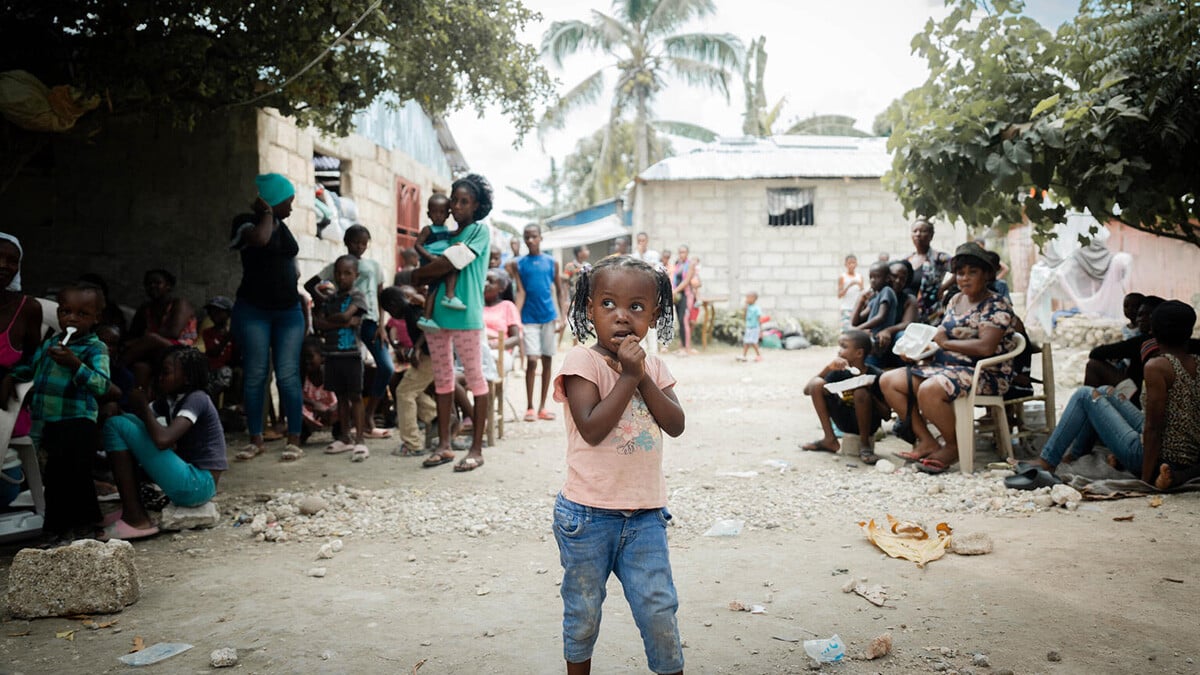Over 300 000 children now internally displaced in the country, a 60 per cent increase since March.
The number of internally displaced children in Haiti has increased by an estimated 60 per cent since March – the equivalent of one child every minute – a result of ongoing violence caused by armed groups. According to latest estimates, almost 600 000 people – over half of whom are children – are now internally displaced in Haiti and in urgent need of humanitarian assistance.
“Children in Haiti continue to endure an onslaught of multiple dangers, including horrific violence and critical levels of displacement,” said UNICEF Executive Director Catherine Russell. “The humanitarian catastrophe unfolding before our eyes is taking a devastating toll on children. Displaced children are in desperate need of a safe and protective environment, and increased support and funding from the international community.”
Displaced children and adolescents in Haiti are at increased risk of violence, including sexual assault, exploitation and abuse, and family separation. They often face disrupted access to services, such as safe spaces, health care, and clean water and sanitation.
Poor hygiene conditions in camps and makeshift settlements put them at increased risk of disease, including cholera, while school closures and financial constraints caused by the ongoing violence have forced many to drop out of school.
Meanwhile, years of political turmoil, alongside the devastating economic conditions, has fueled the growth of armed groups. In the absence of other means of survival or protection, children are increasingly forced to join these groups – a clear violation of their rights and a breach of international law.
With ninety per cent of Haiti’s population living in poverty and three million children in need of humanitarian assistance, this new wave of internally displaced people are also contending with what the National Emergency Operations Center announced as a “hyperactive” cyclone season. Last month, a tornado destroyed the homes of 650 children in Bassin Bleu, in the country’s Northwest Department.
The crippled healthcare system that was barely able to cope with demand before the latest escalation of violence will have to contend with a rainy season that is expected to continue to worsen the situation, threatening to spike water-borne disease in a country that reported over 84 000 suspected cholera cases.
“The needs in Haiti continue to grow, alongside the dangers for children. Everyone has a role to play to change the trajectory, and ensure that children get back to school, that they are safe, and that they have access to basic services. Children should not be paying with their lives and their futures for a crisis created by adults,” said Russell.
